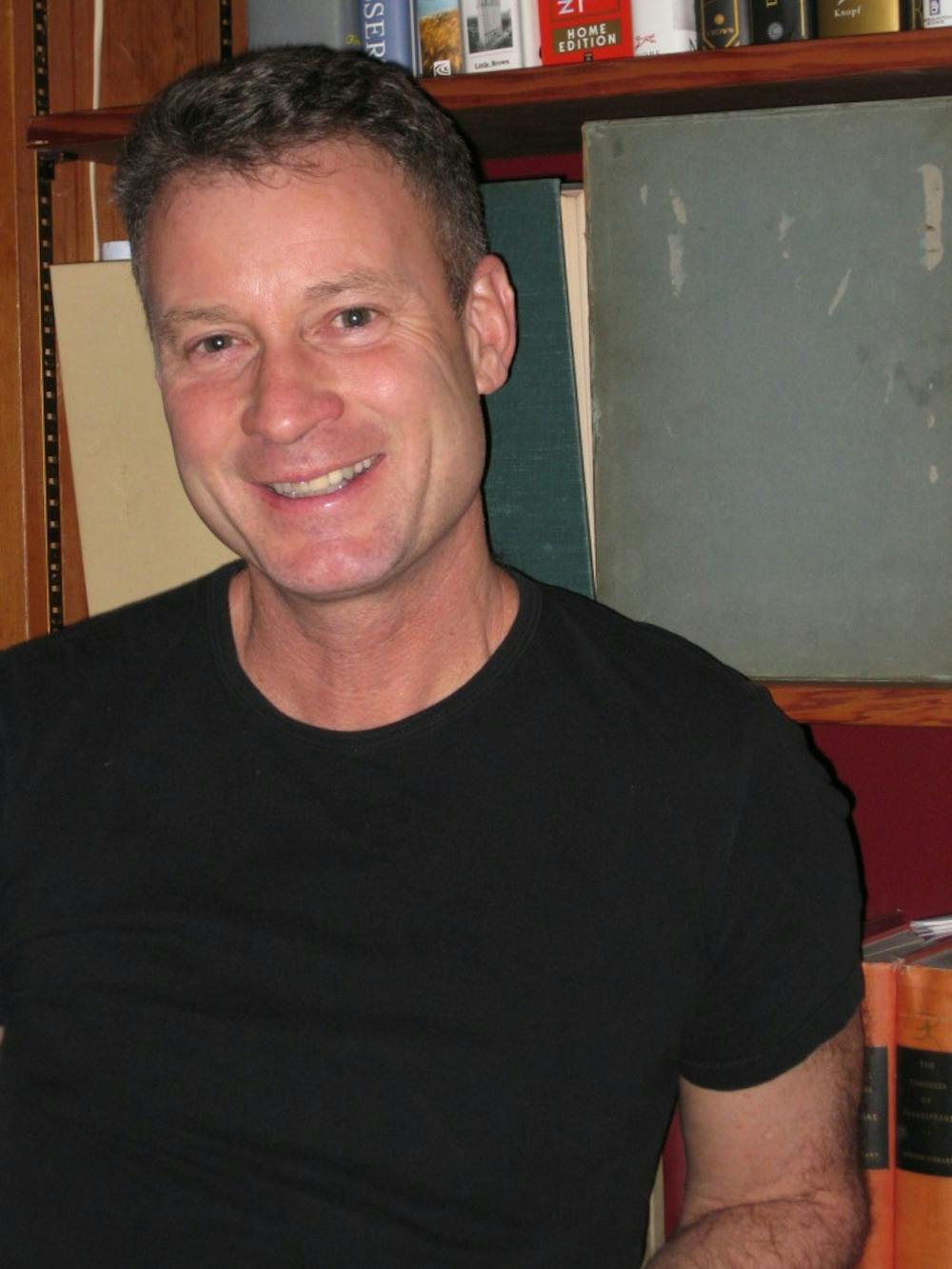New York Times contributor and Schoenfeldt distinguished writer will speak in Mago Hunt Tuesday at 7 p.m.
(Photo courtesy of Tim Egan)
By Natalie Wheeler Staff Writer wheelern12@up.edu
Seattle-based Tim Egan has written six books including National Book Award winner "The Worst Hard Time" and his most recent "The Big Burn: Teddy Roosevelt and the Fire that Saved America." He is also a Pulitzer Prize-winning journalist.
"Tim's like a cheerful story sponge. I bet a buck it will be a fascinating evening," Brian Doyle, editor of Portland Magazine, said of Egan's upcoming visit. In anticipation, The Beacon interviewed Egan via email about his books, columns and love for the Pacific Northwest.
Q: Did you always want to be a "writer" or did you have other ambitions?
A: I think I've wanted to be a writer since 3rd grade, when the teacher asked me to read my poem in front of everyone, and they liked it. That told me something about the power of words. Q: Favorite author(s)?
A: My tastes vary with the years. But I'll read anything by the historian David McCullough, or my fellow Seattleite, Erik Larson. I agree with Ernest Hemingway's assessment that the foundation of American fiction starts and ends with "Huckleberry Finn." I read Irish poetry (Yeats), when I'm in the mood. With fiction, I still love F. Scott Fitzgerald (the Great Gatsby is word-perfect), and recently I've enjoyed "Cutting for Stone." On the trash-thriller front, I shamefully gulped down Stieg Larsson's three books on the Girl with the Dragon Tattoo – Scandinavian noir at its best.
Q: You're a born and bred Seattleite. What has kept you in the Pacific Northwest?
A: The outdoors. My friends and family. Easy-to-enjoy, fun cities. The lack of pretention. Blue states!
Q: Is there a particular writing piece of yours that you are most proud of?
A: No. But sometimes, I'm just as pleased with an 800-word column for the New York Times as I am with a 100,000-word book – or just as disappointed.
Q: Your latest book "The Big Burn: Teddy Roosevelt and the Fire that Saved America" details the biggest fire in U.S. history. What made you interested in that subject?
A: I love the characters–a charismatic president, a quirky head of the forest service. And I love the clash of man vs. nature. It was the biggest single fire ever, and that alone made for compelling stuff. Q: You've excelled in both journalism and creative writing, winning both a Pulitzer Prize for reporting and a National Book Award. What do you enjoy more, writing books or writing articles?
A: I enjoy both in equal measure, and I'm not sure I could do one without the other. I'm not suited for long, solitary spells of book writing, without a quick sprint into the real world of journalism.
Q: What is your take on the "journalism is dying" debate?
A: Don't buy it. The paper format may be dying, but journalism is healthier than ever. We get more readers now at the New York Times than ever – up to 20 million a day, because of the web. Most papers have experienced a similar expansion of their audience. It'll settle down eventually, when a good business model is found.
Q: You currently contribute opinion columns to the New York Times about the Pacific Northwest. What do you find yourself writing about most in those columns?
A: Politics. I thought I'd be taking on other subjects, which I enjoy – religion, nature, history, education – but every week it seems there is some great political topic that pops up, or Michele Bachmann says something idiotic.
Q: Do you have any rituals for writing?
A: No. But I take a blue-collar approach, trying to write a set amount every day, so I can get done and go out and play.
Q: Any extra nuggets of knowledge you hope to impart to the University of Portland community next Tuesday night?
A: Just hope to give a sense of some of these great, larger-than-life stories floating around our corner of the country, and how I approach them. No juggling or singing, though.








